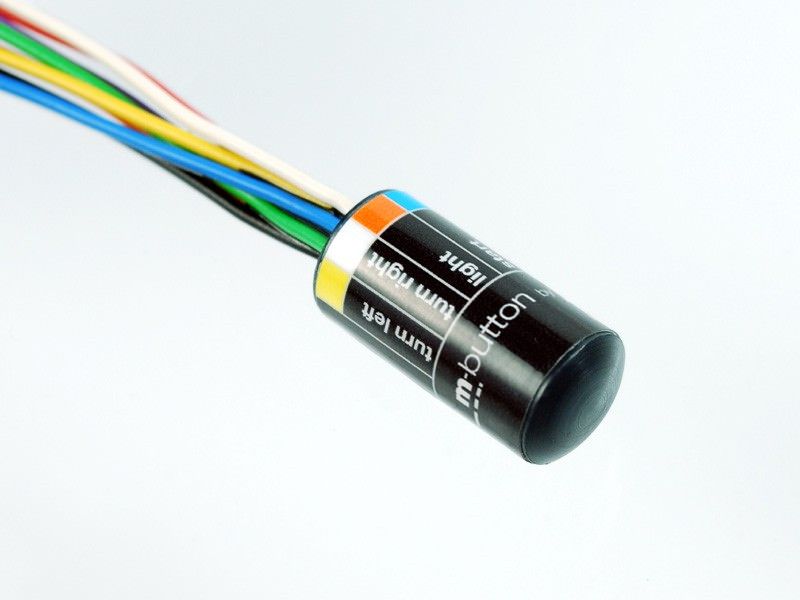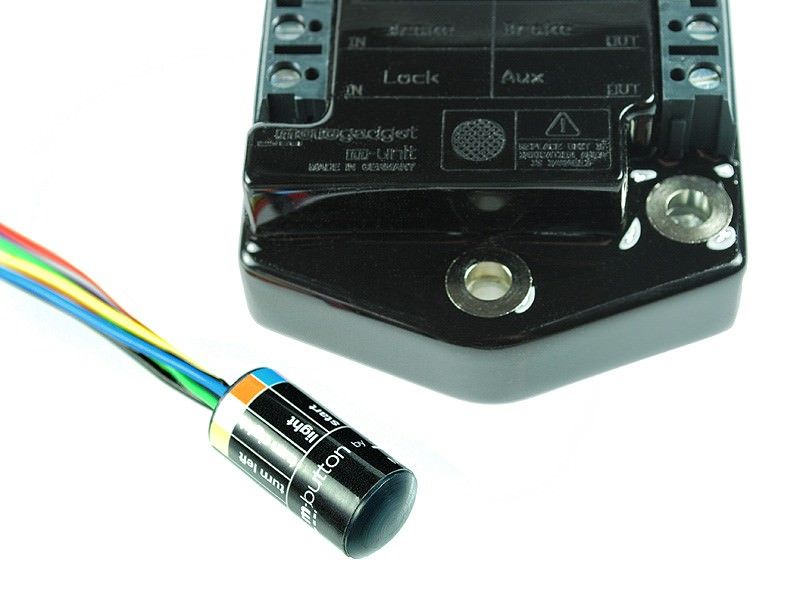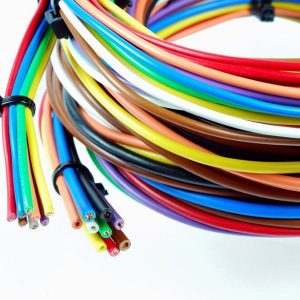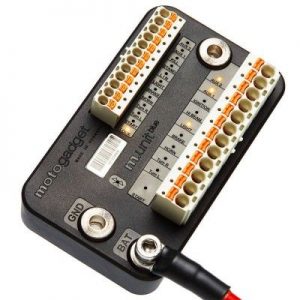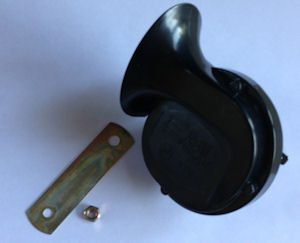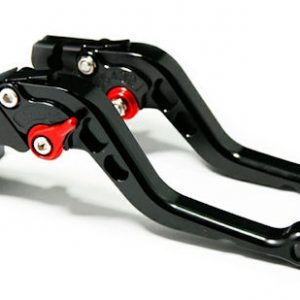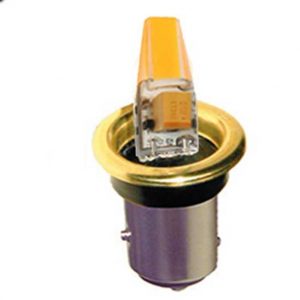m.button
Another innovation from motogadget: the m.button.
It’s a big help – in combination with the mo.unit basic and mo.unit blue – in reducing ‘cable clutter’ and simplifying the wiring harnesses.
Integrated into the handlebar tube – or any other adequate location – this tiny cylinder will electrically connect all handlebar instruments, switches and buttons.
Using state-of-the-art bus technology, the mo.button digitally processes signals and transmits them to the mo.unit basic or mo.unit blue over a thin cable.
The electrical consumers will then be switched inside the mo.unit.
All control wires are moved into the handlebar. This saves space, weight, labour and time. A ‘must have’ for custom bikes with clean-look handlebars.
a) normally, the operating current (e.g. headlight or turn signals) is transmitted directly via the wiring of the handlebar switches. Due to the high currents, cables with large cross-sections have to be routed from the fuse box to the switch and back to the electrical consumer.
The result: big cable bundles. Definitely, a ‘no go’ for custom bikes with restricted space or a concealed electrical system.b) using the mo.unit without the mo.button, just a thin cable for each switch- or button-controlled feature has to be routed to the mo.Uuit. These cables only carry minute control currents. All high loads and currents are switched directly at the mo.unit and transmitted directly to the electrical consumers. This already leads to a significant reduction and simplification of the wiring harness. Here you can see the example of a circuit diagram.
c) using the mo.unit basic or mo.unit blue in combination with the tiny mo.button, you will once again reduce the amount of cables that have to be routed! All switches/buttons on the handlebar are connected at the shortest distance possible and concealed inside the handlebar. Consequently, you will have to route only ONE thin cable from the mo.button to the mo.unit. All loads and currents will be switched directly at the mo.unit blue, mo.unit basic or m.Unit V.2 (see explanations above). A layout reduced to the max! Here you can see the example of a circuit diagram with use of mo.button.
The mo.button is completely moulded in, making it water-tight and resistant to vibrations.
Specs
The mo.button has connections for
– Left turn signal
– Right turn signal
– Light (alternating between low beam and high beam)
– Electric Start
– Horn
– Front brake light switch
Dimensions
Diameter: 12 mm
Length: 25 mm
The cables have a length of about 60 cm. The cable to the m.unit is 200 cm long.
Weight about 30 gr
